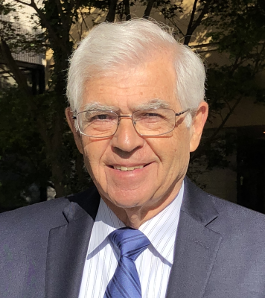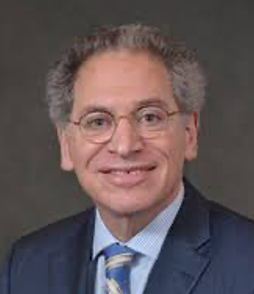Emerging Therapies in CSU
Clinical Professor of Medicine, Medical University of South Carolina (MUSC)
Charleston, SC
 Dr. Allen Kaplan graduated from Downstate Medical School (SUNY-Brooklyn) and completed his Residency in Medicine at Strong Memorial Hospital in Rochester, NY. From there he spent two years as a Clinical Fellow in the Arthritis and Rheumatism Branch of The National Institute of Arthritis and Metabolic Diseases followed by a Fellowship in Allergy and Clinical Immunology at the Harvard Medical School - Robert B. Brigham Hospital. He then returned to NIH as Head of the Allergic Diseases Section of NIAID where he remained for six years (1972-1978) and established the Allergic Diseases Center at NIH. Dr. Kaplan next moved to Stony Brook University where he was Head of the Division of Allergy, Rheumatology, and Clinical Immunology for 9 years, and was then named Chairman of the Department of Medicine. He remained at Stony Brook for 19 years and then came to The Medical University of South Carolina as Professor of Medicine. He is board certified in Internal Medicine, Allergy and Clinical Immunology, Rheumatology, and Diagnostic Laboratory Immunology.
Dr. Allen Kaplan graduated from Downstate Medical School (SUNY-Brooklyn) and completed his Residency in Medicine at Strong Memorial Hospital in Rochester, NY. From there he spent two years as a Clinical Fellow in the Arthritis and Rheumatism Branch of The National Institute of Arthritis and Metabolic Diseases followed by a Fellowship in Allergy and Clinical Immunology at the Harvard Medical School - Robert B. Brigham Hospital. He then returned to NIH as Head of the Allergic Diseases Section of NIAID where he remained for six years (1972-1978) and established the Allergic Diseases Center at NIH. Dr. Kaplan next moved to Stony Brook University where he was Head of the Division of Allergy, Rheumatology, and Clinical Immunology for 9 years, and was then named Chairman of the Department of Medicine. He remained at Stony Brook for 19 years and then came to The Medical University of South Carolina as Professor of Medicine. He is board certified in Internal Medicine, Allergy and Clinical Immunology, Rheumatology, and Diagnostic Laboratory Immunology.
Dr. Kaplan was President of AAAAI in 1989, President of the Clinical Immunology Society in 1990, and President of The World Allergy Organization (WAO/IAACI) from 2000–2003. Author of over 380 publications, his major areas of interest are the mechanisms for production of bradykinin and its role in human disease, as well as the pathogenesis and treatment of urticaria and angioedema. He edited The Journal of the World Allergy Organization for five years, edited the textbook Allergy, was Co-Editor, with Dr. Malcolm Greaves, of a text entitled Urticaria and Angioedema, and is Co-Editor of the two-volume textbook Allergy and Allergic Diseases.
Emeritus Staff, Department of Allergy & Clinical Immunology, Cleveland Clinic
Professor of Medicine, Cleveland Clinic Lerner College of Medicine at Case Western Reserve University
Cleveland, OH
 David Lang received his M.D. from the University of Michigan, completed Internal Medicine training at Henry Ford Hospital, Allergy/Immunology fellowship at Scripps Clinic, and Medical Education Fellowship at Cleveland Clinic.
David Lang received his M.D. from the University of Michigan, completed Internal Medicine training at Henry Ford Hospital, Allergy/Immunology fellowship at Scripps Clinic, and Medical Education Fellowship at Cleveland Clinic.
Dr. Lang has carried out a number of research projects, including studies of chronic urticaria, aspirin exacerbating respiratory disease, asthma, anaphylaxis, and drug allergies. He has published more than 175 peer-reviewed manuscripts in a variety of journals including New England Journal of Medicine, Annals of Internal Medicine, Journal of Allergy and Clinical Immunology, Journal of Allergy and Clinical Immunology in Practice, Allergy, Annals of Allergy Asthma and Immunology, World Allergy Organization Journal, and Allergy & Asthma Proceedings.
Dr. Lang served as Chair of the Department of Allergy & Clinical Immunology at Cleveland Clinic from 2002-2022, on the Cleveland Clinic Staff until 2025, and is a Past President of the American Academy of Allergy, Asthma and Immunology (AAAAI). He has chaired or served on numerous AAAAI committees/task forces, formerly served as Co-Chair of the Joint Task Force on Practice Parameters and was a member of this Task Force from 2001-2018. He currently serves on the Board of Directors of the World Allergy Organization, and on the Board of Directors of Interasma.
Dr. Lang’s medical career has been supported by his wife, Marjory, and children, Madelyn and Jonathan. He appreciates support from family, friends, and colleagues, and is grateful for opportunities to contribute to the field of Allergy and Clinical Immunology.
